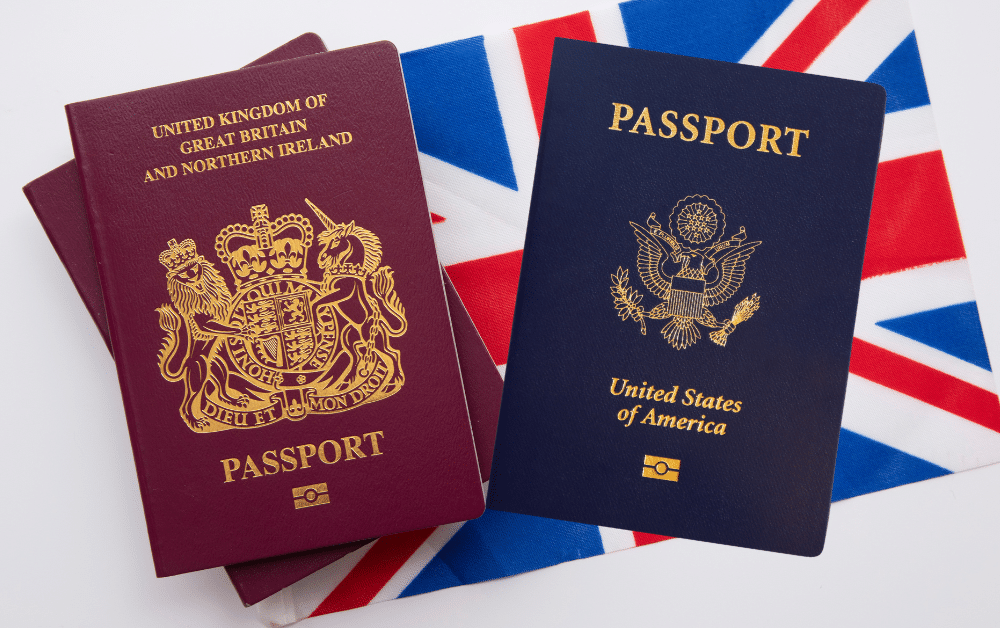US-UK Dual Citizen Tax Guide: How to File Without Stress

The IRS announced an increase in the Foreign Earned Income Exclusion to $130,000 for tax year 2025, up from $126,500 in 2024. Combined with the UK-US Tax Treaty and Foreign Tax Credits, most dual citizens owe nothing to the IRS, even though you must still file.
U.S.-U.K. dual citizens must file U.S. tax returns annually, regardless of where they reside. The US taxes are based on citizenship, not residence, meaning your worldwide income needs to be reported. But before you worry about double taxation, know that our CPAs and Enrolled Agents, many living in the UK themselves, know the unique challenges you face and have the expertise to ensure you pay only what you legally owe, not a penny more.
Do I Really Need to File Both US and UK Tax Returns?
The short answer: It depends on your situation, but likely yes to both.
US Tax Filing Requirements: Every US citizen is required to file an annual tax return, reporting worldwide income. This includes UK salary, rental income, investments, and even UK state benefits. The automatic filing deadline for expats is June 15 (extended from April 15), with a further extension available to October 15.
UK Tax Filing Requirements: Most UK employees won’t need to file a UK Self-Assessment because taxes are automatically deducted through PAYE (Pay As You Earn). You’ll only need to file if you have employment income over £100,000, self-employment income over £1,000, investment income over £10,000, are a company director, or have foreign-source income.
How Do I Avoid Being Taxed Twice on the Same Income?
Double taxation sounds scary, but three main protections work together to eliminate it for most dual citizens:
The US-UK Tax Treaty determines which country has primary taxing rights. Generally, you pay taxes where you live for most of the tax year, with specific rules applying to different income types, such as pensions and dividends. Learn more about the UK vs the US tax systems.
Foreign Earned Income Exclusion (FEIE) lets you exclude foreign earnings from US tax:
- 2025 tax year (filed in 2026): Exclude up to $130,000
- 2024 tax year (filed in 2025): Exclude up to $126,500
Example: Emma works in London earning £90,000 ($112,500). Using FEIE, she excludes the entire amount from US taxation, owing $0 to the IRS.
Foreign Tax Credit (FTC) provides dollar-for-dollar credits for UK taxes paid. Since UK tax rates typically exceed those in the US, this often eliminates any US tax liability. The IRS explains that if you qualify for the Foreign Tax Credit, you receive a tax credit equal to at least part of the taxes paid to a foreign government.
Example: James earns £120,000 ($150,000) working in Edinburgh. After using the $130,000 FEIE, he has $20,000 of taxable US income. But his UK taxes paid on that portion create enough FTC to reduce his US bill to zero.
What If I Was Born in the US But Never Lived There?
You might be what’s known as an “Accidental American”; someone who acquired US citizenship at birth but has minimal connection to the US. Unfortunately, the IRS still considers you a US citizen subject to tax obligations, even if you’ve never lived in America since birth.
Many UK residents discover their US tax obligations only when:
- Opening investment accounts (banks now report to the IRS under FATCA)
- Selling property (triggering capital gains reporting)
- Receiving inheritance (potentially subject to US estate tax rules)
The good news? If you’re just discovering these obligations, the IRS Streamlined Filing Procedures allow you to catch up without penalties, requiring only three years of back returns and six years of FBARs.
Which Forms Do I Need to File?
Beyond the standard Form 1040, dual citizens typically need:
- Form 2555 – Claims the Foreign Earned Income Exclusion
- Form 1116 – Claims the Foreign Tax Credit
- Form 8938 (FATCA) – Reports foreign financial assets if you exceed thresholds: (Living in the UK: $200,000 single/$400,000 married filing jointly at year-end)
- FinCEN Form 114 (FBAR) – Required if foreign accounts exceed $10,000 combined at any point
For business owners or those with investments, additional forms may apply (Forms 5471, 8621, 8865).
When Should I Use FEIE vs Foreign Tax Credit?
Choose FEIE when:
- Living in a low-tax country or a tax-free jurisdiction
- Your income falls below the exclusion limit
- You want to contribute to a Roth IRA (FTC income doesn’t qualify)
Choose FTC when:
- Living in the UK or other high-tax countries
- Earning above the FEIE limit
- You want to carry forward unused credits to future years
Many taxpayers use both strategically: FEIE on earned income up to the limit, then FTC on the remainder and investment income. To qualify for FEIE, you must pass either the bona fide residence test or the physical presence test.
What Happens If I Haven’t Filed for Years?
Don’t panic. The IRS Streamlined Filing Procedures were explicitly designed for expatriates who were unaware of their filing obligations. This program allows you to:
- File the last three years of delinquent returns
- Submit six years of FBARs
- Self-certify that your failure to file wasn’t willful
- Pay zero penalties if you qualify
Critical point: You must use this program before the IRS contacts you. Once they reach out, the door closes on penalty-free compliance.
Can I Prepare for the UK’s Making Tax Digital Requirements?
Starting April 2026, Making Tax Digital will require quarterly digital reporting for self-employed expats and landlords earning above certain thresholds. If you earn income from self-employment, UK property, or overseas property, you may need to switch from annual Self-Assessment to quarterly digital submissions. HMRC will notify eligible taxpayers after reviewing 2024-2025 returns.
Can Greenback Handle Both My US and UK Taxes?
Yes, and this integrated approach saves you time and money. Our UK Chartered Accountants work directly with our US CPAs and Enrolled Agents, meaning:
- Upload documents once to your secure Tax Companion Account
- No explaining your situation twice
- Maximum tax savings through coordinated planning
- Seamless handling of treaty benefits and foreign tax credits
Whether you need help with UK Self-Assessment, US compliance, or both, our team ensures nothing falls through the cracks.
What Are My Next Steps for Peace of Mind?
Being a US-UK dual citizen doesn’t have to mean tax confusion. With the right expertise and planning, you can remain compliant without overpaying. Here’s what to do:
- If you’re current on filing: Review whether you’re using the optimal FEIE/FTC strategy for your situation
- If you’re behind: Act now to use Streamlined Procedures while they’re available
- If you’re unsure: A consultation can clarify your exact obligations and opportunities
For more information, read our UK Country Guide. If you’re considering a move, check out our guide on moving to the UK from the USA.
If you’re ready to be matched with a Greenback accountant, click the get started button below. For general questions on expat taxes or working with Greenback, contact our Customer Champions.
This article provides general information about US tax obligations for dual citizens and should not be considered personal tax advice. Tax situations vary greatly based on individual circumstances. Always consult with a qualified tax professional who is familiar with both U.S. and U.K. tax law before making tax decisions.



